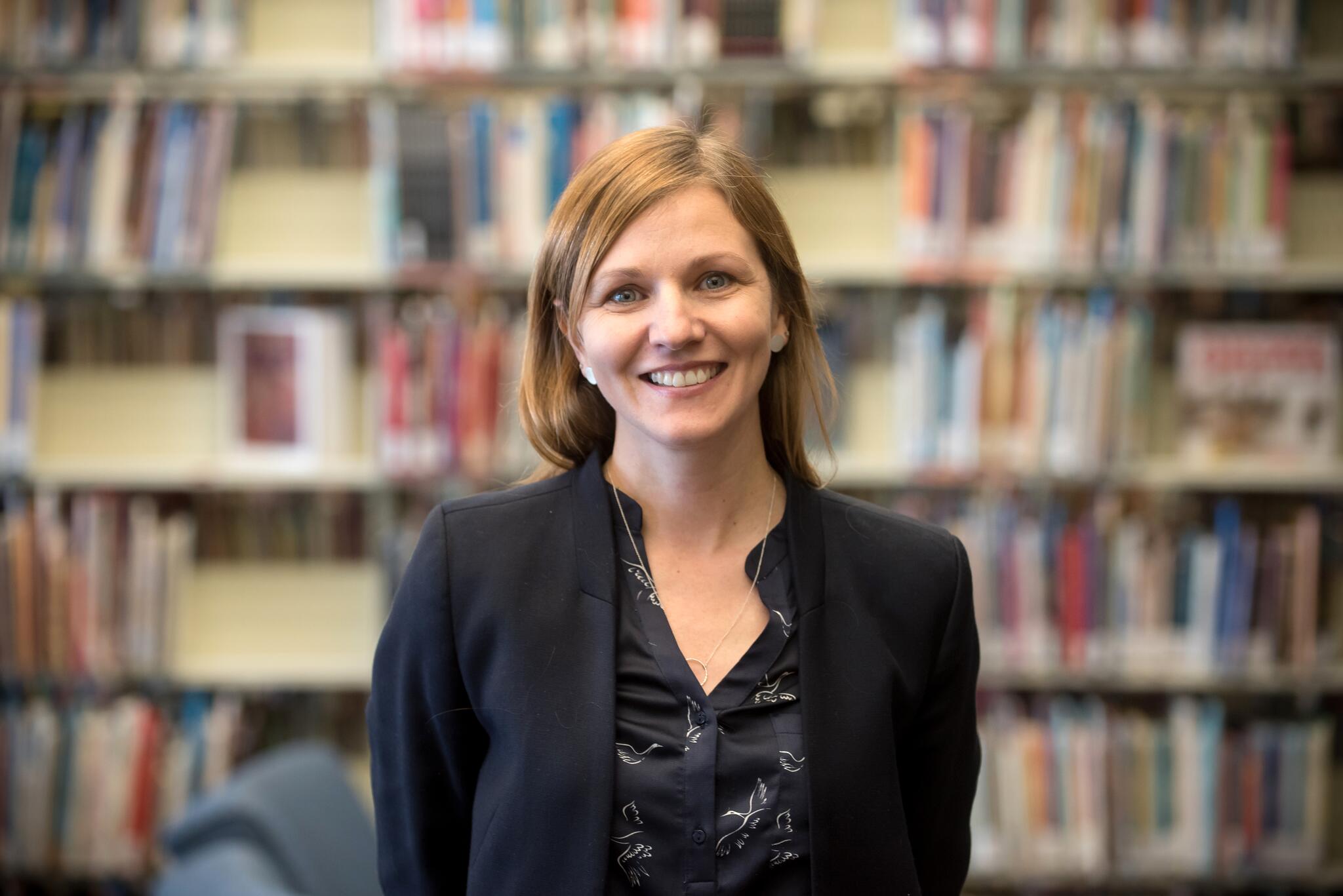 A walk in the woods may not be the typical setting for reading and writing instruction, and yet alternative education approaches, like outdoor learning and forest schools, are successfully integrating research-informed literacy instruction into their programming. Dr. Pamela Beach, Associate Professor of Language and Literacy at the Faculty of Education wants to know what’s working well in those contexts and why.
A walk in the woods may not be the typical setting for reading and writing instruction, and yet alternative education approaches, like outdoor learning and forest schools, are successfully integrating research-informed literacy instruction into their programming. Dr. Pamela Beach, Associate Professor of Language and Literacy at the Faculty of Education wants to know what’s working well in those contexts and why.
Research on literacy development in alternative contexts is scarce, and yet sharing stories about how literacy is integrated into different early learning approaches could prove particularly valuable for supporting students who are struggling to read or for teachers who are new to early literacy development and instruction.
“In Montessori classrooms, for instance, educators use a multisensory structured literacy approach similar to what we are seeing more and more of in the public school system,” said Pamela. “I’m interested in how teachers ensure that their students are exposed to effective and research-informed reading instruction. Additionally, how does this occur in an outdoor learning school while also interweaving literacy into their outdoor classroom settings?”
During the next year, Pamela plans to speak with teachers across Canada and around the world, including instructors in Italy where Montessori and Reggio Emilia started. She will be looking for patterns across different teaching contexts, with the intention of sharing that information with teachers and parents through her blog and presenting her findings at international conferences.
“There's a lot of conversation on how to best teach reading and teachers are doing things differently because they're also differentiating their instruction,” she said. “Every story is going to be unique, and every student is different, so sharing these stories can have a lot of impact on somebody’s interests or attitudes.”
Pamela anticipates her findings will also shape her own instructional approach at Queen’s when she returns from sabbatical in 2023.
Teaching for impact
“I bring a lot of my research into my teaching, and a lot of the work I've done in my teaching practice with the teacher candidates goes back out into the community,” Pamela said.
She points to The Queen’s Reading Club, a pre-pandemic initiative where Bachelor of Education teacher candidates worked one-on-one with Kingston elementary students at St. Francis of Assisi Catholic School. The teacher candidates and students were paired up for seven weeks, providing the candidates with real-world experience in diagnostic and screening assessments and targeted instruction.
By collaborating with their peers and under Pamela’s guidance, the candidates were able to apply their theoretical knowledge developing specific strategies and targeted literacy interventions that helped students overcome barriers. For the elementary students, the one-on-one relationships with the teacher candidates, along with extra reading practice, were especially important to building literacy skills.
“In any classroom there's usually one teacher, so students don't always get that one-on-one time. That relationship piece with students is foundational to success.”
There is strong interest in reviving The Queen’s Reading Club program now that in-person learning has fully resumed. Along with supporting students and providing valuable field placements for teacher candidates, this initiative provides Pamela with a real-time window into how teacher candidates and teachers learn and access information to best support their students.
Taking a closer look at how teachers learn and gather information
Pamela is currently wrapping up a study on how teachers self-direct their learning in online environments. The study, which is supported by a SSHRC grant, involved meeting virtually with about a dozen elementary teachers in Ontario once a month for three months during the pandemic to understand what resources teachers were looking for, how they gathered information and why they were seeking resources.
“Teachers always had something specific they were looking for or trying to build on – whether it was their own knowledge or a topic they were teaching in class. We looked at the different strategies they used to generate and save information, make connections, and monitor their own learning.”
Part of the study looked at web and data analytics from The Balanced Literacy Diet, a research-informed library of resources for teachers that Pamela contributed to while she was a graduate student. The analytics showed that teachers got more specific in their searches as a search session progressed, downloading photos and lesson plans to support student learning; oftentimes, the inference was that teachers were looking for material to help support a student or students with particular learning needs.
The quality of the sources teachers use, however, is not always consistent.
“Pinterest is such a huge resource for teachers, which is problematic on some levels because the information is not always correct,” said Pamela. “You have to critically analyze sources and authorship, although there is the temptation to quickly grab content online that looks doable to support lesson planning.”
Implications of this research might be informing how websites, platforms or other online resources for teachers can be enhanced. It may also lay the groundwork for encouraging organizations with research-based information to more frequently publish on platforms like Pinterest.
Pamela said teachers are constantly building their knowledge – whether that’s understanding the components of reading, for example, or looking for articles that give them background information about the topics they are digging into with their students.
“We talk to our teacher candidates about that all the time…you need that understanding and theoretical knowledge to actually make decisions that can best support your students,” she said. “When a teacher is going out there to find resources online, they have their students in mind. That's the number one thing.”
Support projects like this by contributing to our Community Initiatives Fund.


